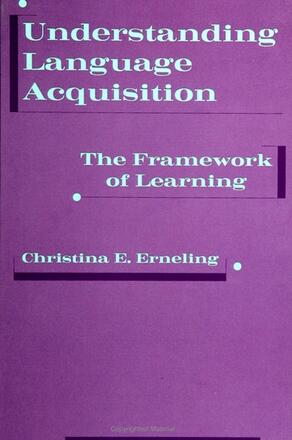
Understanding Language Acquisition
The Framework of Learning
Alternative formats available from:
Description
How is language acquisition possible? How is it that humans, within a few years of birth, can speak and understand language, transcending both its limited experience and biological limitations?
In this challenge to the narrow confines of psychology and philosophy, Christina Erneling argues that language acquisition results from the interaction between linguistic creativity inherent in language and a biological and social framework of learning.
Erneling explains and critically analyzes the idea that language acquisition requires a meaningful "language of thought," contrasting this with Wittgenstein's ideas on language and learning. Erneling shows that the assumptions in J. Fodor's development of Chomky's ideas into a theory of "language of thought" have significantly influenced developmental theories, yet fail to resolve the conflict between linguistic creativity and the necessity of a framework for learning. She argues that the later Wittgenstein was more concerned with the conditions of learning than is generally appreciated and shows how his remarks can be developed into an alternative approach to language learning.
Understanding Language Acquisition has profound implications for evaluating hidden metatheoretical assumptions, as well as for empirical research and methods for teaching language and treating language disorders.
Christina Erneling is Professor of Philosophy at York University, Toronto.
Reviews
"The schism in cognitive science between those who follow the computer model and those who think language is enough in itself is widening. This book is timely and may sway some of the doubters.
"I particularly liked the way that the author focussed on Fodor's exemplary version of the 'language of thought' thesis. Also, it cannot be emphasized enough that Wittgenstein's account of all normative practices requires that there be natural or trained regularities in place before linguistic or other normative practices can be acquired. The consequential step that Wittgenstein makes, of developing a psychology of skills, is well brought out. The book is not only a contribution to the field of developmental psycholinguistics, but to Wittgenstein scholarship. " — Rom Harré, Oxford and Georgetown Universities